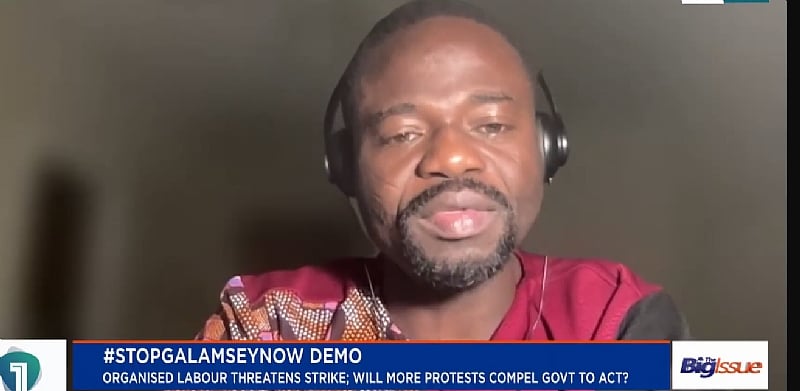Investigative journalist Manasseh Azure Awuni has expressed alarm over the political approaches being adopted by Ghana’s ruling New Patriotic Party (NPP) and the opposition National Democratic Congress (NDC) as the upcoming 2024 elections draw nearer. In a recent interview on The Big Issue with Channel One TV, Awuni underscored a troubling trend where both parties are courting the support of illegal miners, locally referred to as galamseyers. This strategy highlights a significant ethical dilemma for the parties, as they grapple with the realization that any action taken against illegal mining could potentially alienate a voter base that they are eager to secure. Awuni’s comments reflect a critical juncture where political ambition collides with pressing social and environmental issues, raising questions about the moral integrity of the strategies employed by these major political entities.
Amid the brewing crisis over illegal mining, Professor Ransford Gyampo, the President of the University of Ghana Branch of the University Teachers Association of Ghana (UG-UTAG), has voiced strong criticism towards the government’s tactics in combating illegal mining operations, commonly known as galamsey. His critique comes in the wake of a recent meeting between President Akufo-Addo and leaders from Organised Labour, where the President sought additional time to address the escalating galamsey crisis. This meeting had been prompted by Organised Labour’s declaration of an impending indefinite strike, slated for October 10, following the government’s failure to meet their demands, which included a total ban on mining and a declaration of a state of emergency in response to the galamsey issue. Gyampo’s remarks reflect a growing frustration within civil society regarding the government’s perceived inaction and lack of concrete strategies to tackle this pressing concern.
During the aforementioned meeting, President Akufo-Addo attempted to pacify the leaders of Organised Labour by promising to prioritize their concerns regarding the galamsey crisis. His appeal was intended to dissuade them from proceeding with their planned strike, indicating the urgency with which the government was attempting to address the situation. Following the meeting, Information Minister Fatimatu Abubakar issued a statement emphasizing the government’s commitment to dealing with the illegal mining crisis, which is seen as a pressing threat to the environment and local communities. However, this statement was met with skepticism, particularly from Professor Gyampo, who noted that the lack of communication with organized labour’s base made the government’s assurances appear superficial and unconvincing.
Prof. Gyampo’s critique underlines a broader discontent with the government’s communication strategy during this crisis. He argued that organized labour has not had an adequate opportunity to engage with its members about the recent developments, thus rendering the government’s statements somewhat premature and lacking in substance. The disconnect between the government’s reassurances and the on-the-ground realities faced by labor groups highlights the challenges in effectively managing the galamsey issue. As tensions rise between the government and organized labor, Gyampo’s comments suggest a breakdown in dialogue and trust, which could complicate efforts to formulate and implement effective policies.
As the political landscape intensifies approaching the 2024 elections, the engagement of illegal miners by both the NPP and NDC raises significant ethical questions. The courting of galamseyers for electoral gain not only reflects the desperation of the political parties to secure votes but also indicates a troubling willingness to overlook the ramifications of illegal mining practices. Such actions may ultimately undermine efforts to curb illegal mining and protect Ghana’s natural resources. Awuni’s observations underscore the urgent need for a more principled political discourse that prioritizes environmental sustainability and the welfare of local communities over short-term electoral goals.
In conclusion, the interplay of political strategies and the galamsey crisis illuminates a pivotal moment in Ghanaian politics. As both major political parties seem poised to exploit the support of illegal miners, the implications for governance, environmental integrity, and social equity become increasingly pronounced. The criticisms levied by figures like Prof. Gyampo point to a discontent with the current administration’s handling of the galamsey issue, suggesting a need for transparent communication and comprehensive policy responses. The upcoming elections could serve as a litmus test for the parties’ commitments to address illegal mining and related challenges, ultimately determining the trajectory of Ghana’s political landscape and its approach to environmental and labor issues in the future.


